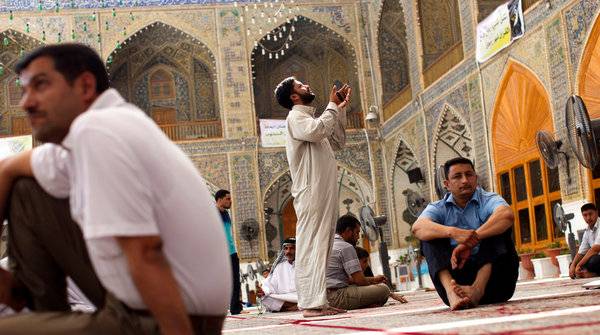Vacuum Is Feared as U.S. Quits Iraq, but Irans Deep Influence May Not Fill It

http://www.nytimes.com/2011/10/09/w...iked-iran-may-not-fill-it.html?ref=middleeast

NAJAF, Iraq As the United States draws down its forces in Iraq, fears abound that Iran will simply move into the vacuum and extend its already substantial political influence more deeply through the soft powers of culture and commerce. But here, in this region that is a center of Shiite Islam, some officials say that Iran wore out its welcome long ago.
Surely, Iran has emerged empowered in Iraq over the last eight years, and it has a sympathetic Shiite-dominated government to show for it, as well as close ties to the anti-American cleric Moktada al-Sadr. But for what so far are rather obscure reasons perhaps the struggling Iranian economy and mistrust toward Iranians that has been nurtured for centuries it has been unable to extend its reach.
In fact, a host of countries led by Turkey but not including the United States have made the biggest inroads, much to the chagrin of people here in Najaf like the governor.
Before 2003, 90 percent of Najaf people liked Iranians, said the governor, Adnan al-Zurufi, who has lived in Chicago and Michigan and holds American citizenship. Now, 90 percent hate them. Iran likes to take, not give.
Near midnight, Mr. Zurufi held court at a cafe, his team of bodyguards standing sentry at the door, frisking patrons. Outside, a convoy of white sport utility vehicles waited, and nearby, down a crooked alleyway, thousands of visitors took in the nighttime serenity of the Imam Ali Shrine, one of the holiest sites for the Shiite diaspora, where millions of Iranians flock every year.
Mr. Zurufis comments cut against the grain of what is commonly understood about the influence of Iran in southern Iraq, where the two countries have a common religious bond both are majority Shiite but where nationality competes with sect.
A standard narrative has it that the Iraq war opened up a chessboard for the United States and Iran to tussle for power. One of the enduring outcomes has been an emboldened Iran that is politically close to Iraqs leaders, many of whom escaped to Iran during Saddam Husseins government, and that is a large trading partner.
Yet the story is more nuanced, particularly in the Shiite-dominated south that became politically empowered after the American invasion upended Sunni rule. It has been other countries most powerfully Turkey, but also China, Lebanon and Kuwait that have cemented influence through economic ties.
The patterns were established soon after the American invasion. Shoddy Iranian goods particularly low-quality cheese, fruit and yogurt flooded markets in the south, often at exorbitant prices, said Mahdi Najat Nei, a diplomat who heads the Trade Promotion Organization of Iran office in Baghdad. This sullied Irans reputation, even though prices have since plummeted, creating an aversion to Iranian goods that lasts to this day, Mr. Nei said.
This has made it difficult for Iranian businesspeople to make investments in southern Iraq, said Ali Rhida, who is from Iran and is building an iron factory on the outskirts of Najaf. The real problem is with the mangers of the economy in Iran, he said. After the fall of the regime, many Iranian companies came here but they screwed it all up.
In Najaf, officials still complain of low-quality Iranian goods, as well as little real investment from their eastern neighbor and violence perpetrated by militias with links to Iran. Their main complaint about the Americans is their lack of influence.
One aim of the American invasion here was to establish a moderate center of Shiite Islam, democratically inclined and oriented to the West, that would be a counterbalance to Irans system of clerical rule. However, something like the reverse seems to have happened. As Iran has used its political connections to hold great sway over Iraqs leadership class, and has backed militias responsible for assassinations and attacks on American bases, it has been less successful wielding other mechanisms of power at a grass-roots level.
Investment from Iran has almost stopped, said Zuheir Sharba, the chairman of Najafs provincial council, referring to a phenomenon that has more to do with Irans anemic state-run economy than it does to Iranian ambitions. Speaking about Americans, he said, They were coming, but theyve stopped.
http://www.nytimes.com/2011/10/09/w...iked-iran-may-not-fill-it.html?ref=middleeast

